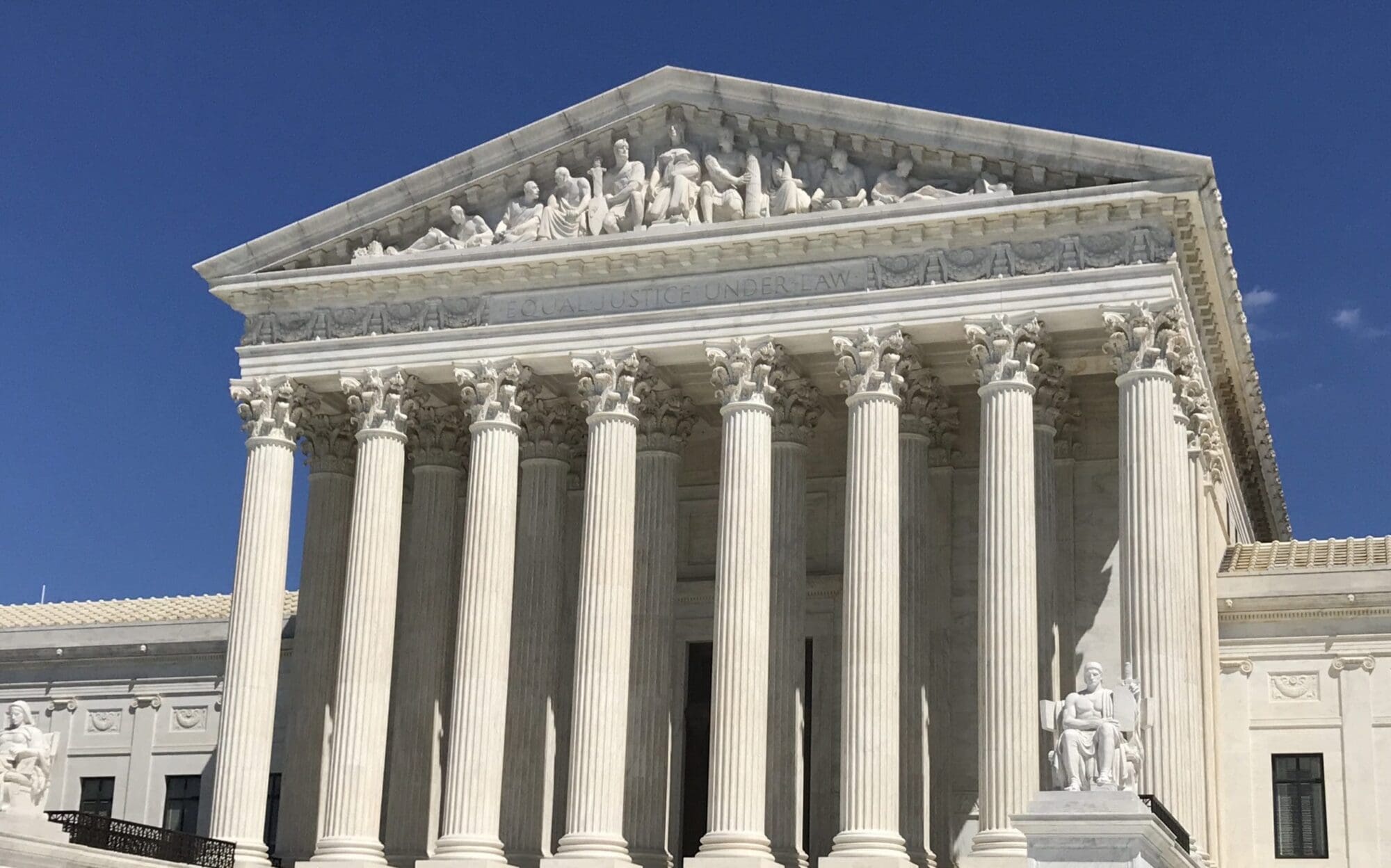A Texas A&M alumnus and retired educator has expressed concern about race-based preferences in a PreK-12 school staff recruiting and training project in which universities under the Texas A&M System are involved. A taxpayer-funded grant from the Biden administration funds the project.
A document that described the project is filled with the terms diversity, equity, and cultural competency. These terms are linked to programs that have been widely shown to have created division when implemented.
This occurred under the watch of the Texas A&M System’s Board of Regents, who oversee the actions of the university and its employees.
Taxpayer-Funded
In October 2022, it was widely reported that the Biden administration gave Prairie View A&M University and Texas A&M a $12.2 million grant to develop a PreK-12 teacher and principal recruiting and training program. The number of prospective teachers for this program was set at 105, and the number of prospective principals at 60. Both universities are under the umbrella of the Texas A&M University System.
A December 2022 U.S. Department of Education press release announced this and other grants are meant to “demonstrate the Biden-Harris Administration’s ongoing commitment to building a strong and diverse educator workforce.”
The project is titled Leading Equity Across Diverse Environments with Revolutionary Synergy, or LEADERS for short. Within a 49-page project narrative, available at the U.S. Department of Education website, the writers claimed that the two universities would be allies in advancing equity in Texas schools. “Each of the professors and instructors who teach at PVAMU [Prairie View A&M University] and TAMU have collective experience in developing school leaders committed to social justice and equity,” the authors wrote in the project narrative.
The resume of one of the project leaders, Texas A&M’s (TAMU) Dr. Valerie Hill-Jackson, stated the project timeline is 2022-2027. She is an assistant professor at the TAMU Department of Educational Administration & Human Resource Development.
The writers of the project narrative stated PVAMU and TAMU would partner with certain Texas government school districts to recruit and train teachers and principals for those districts. The named districts are Houston ISD, Hempstead ISD, Sheldon ISD, Dallas ISD, and Brenham ISD.
Texas Scorecard asked the superintendents of these school districts about LEADERS. Replies are at the end of this article.
Race-Based
“The teacher population in the state of Texas does not match its student population and there is a need to increase the diversity of the teacher and leader population,” the writers of the narrative claimed. “Prairie View A&M University (PVAMU), a Historically Black College and University (HBCU), will lead innovative efforts to increase the diverse number of teachers and school leaders, to better meet the PreK-12 needs of the State of Texas.”
It was this focus on race-based recruiting and training that concerned Texas A&M alumnus Deborah Massey when she reviewed the 49-page document. “I think by doing it this way that we are creating more divide among the rest of the races,” she told Texas Scorecard. “As a white female, I would be offended that this would not be available to me, and that’s what this feels like.”
After graduating from Texas A&M in 1981, Massey had a 34-year career in Texas education. She worked her way up from being a middle school teacher to a principal, then served as a science consultant for the Region 10 Educational Service Center. “When I was going to college, I had to put myself through, and I would have loved to have been able to have access to grant money. But because I was white I wouldn’t have been able to access that money or be a part of this program.”
Massey also disagreed with the idea that one must be “a teacher of color to teach to children of color.” “I taught in San Antonio. I had an extremely large Hispanic population and taught well to them,” she told Texas Scorecard. She agreed that an effective teacher must learn how to teach different cultures, and that not all children learn the same way, but that these are skills one can learn. “Do I think we need to meet the needs of children where they are? Absolutely. But I think anybody can do that, regardless of their race, their culture, their sex, whatever. I think anybody is able to do that with the proper training.” She explained merit and desire to be in education, not skin color, should be the determining factor.
Diversity, Equity, and Cultural Competency
The writers of the project narrative input the terms diversity, equity, and cultural competency repeatedly.
“Promoting equity in student access to educational resources and opportunities” is one of LEADERS’ priorities. It will also “leverage participants’ cultural capital in an effort to expose them to some of the ways curricula that incorporate diversity,[sic] can create a rich learning experience for all PreK-12 learners.”
Cultural competency and equity are in the benchmarks for LEADERS, as seen in the quotes from the project narrative’s expected outcomes.
Articulate how our high-need districts compare and contrast with one another in terms of equitable access, hiring practices, climate, and student achievement gaps at high-need schools in QOZs.
Realize how comprehensive induction prioritizes beginning teacher and leadership development in cultural competency.
The writers of the document also repeatedly labeled Latin Americans as Latinx. The Oxford Languages stated this term is “used as a gender-neutral or nonbinary alternative to Latino or Latina.”
Equity is included in the principal training program also. According to the narrative document, “developing principals” will have “equity coaches,” and in conjunction with mentors, these trainees will “reflect upon the development of their equity consciousness as they simulate and implement equity coaching across the experiences in the program.”
Change and equity go hand-in-hand in the project narrative. “As residents gain in the knowledge, skills and[sic] dispositions of an equity pedagogue, they concurrently gain a cogent understanding of their role as agents of change.” Furthermore, trainees in the LEADERS program would “learn the impact of culturally responsive mentoring and equity coaching,” and scholars would “learn strategies for transforming schools that confront the existing racial disparities in dismal education outcomes.”
Finally, LEADERS will “prepare a cadre of highly-trained teachers and leaders capable of transforming school culture, and student academic outcomes through a culturally responsive and sustaining curriculum.”
Multiple departments at PVAMU and TAMU are listed as involved in LEADERS. At TAMU, these include the College of Education and Human Development and Education Research Leadership Center. At PVAMU, these include their Whitlowe R. Green College of Education and the Minority Achievement, Creativity, and High-Ability Center. Both universities’ Colleges of Science and Colleges of Liberal Arts are also named.
Terms Have Meaning
Diversity and equity are two key components in the widely repudiated DEI philosophy (Diversity, Equity, and Inclusion). Multiple universities and businesses created DEI departments and councils that promoted divisive racial policies. Rather than fight for equal opportunities, activists in such departments have regularly pressed for equal outcomes. While the ideology is marketed as innocent and an attempt to solve alleged racial issues, DEI initiatives are commonly linked with the controversial Critical Race Theory.
Massey said she did not get the impression LEADERS was a way of spreading DEI into Texas’ K-12 schools, but Sherry Sylvester of the Texas Public Policy Foundation did. She has written extensively on the problem of DEI at Texas universities. “‘Social justice’ and ‘equity’ are not educational programs; they are activist slogans. We don’t need teachers who will be ‘agents of change’ and create ‘revolutionary synergy.’ We need teachers who will teach children how to read and write,” she told Texas Scorecard. “After two decades of DEI at Texas universities, we know this won’t work. DEI has done nothing to improve the academic outcomes or graduation success of minority and marginalized students while public school test scores continue to crater, and it is even worse for high risk kids. DEI hasn’t increased minority recruitment of faculty either.”
In June 2023, Gov. Greg Abbott signed into law Texas’ DEI ban for government universities: Senate Bill 17.
Cultural competency is also a loaded term in education. In August 2020, parents in the Carroll Independent School District, located in North Texas, were alarmed to learn of a Cultural Competence Action Plan the district had developed and was implementing. The plan called for the creation of “a systemic process for consistently tracking and reporting microaggressions and incidents of discrimination,” and the establishment of an “LGBTQ+ student focus group (grades 9-12), an equity and inclusion grievance process system, and to expand the school’s tip line to collect allegations of microaggressions.” The CCAP defined “microaggressions” as “everyday verbal or nonverbal, snubs or insults, whether intentional or unintentional which communicate hostile, derogatory, or negative messages to target persons [emphasis added]” because they’re a part of a “marginalized or underrepresented group membership.”
Parental outrage over the CCAP, and Carroll ISD subverting the will of citizens, led to voters firing the established trustees in subsequent school board elections.
Conclusion
Brenham ISD and Houston ISD replied to Texas Scorecard’s inquiry about their participation in LEADERS.
“The program provides financial support for educators who are completing their master’s degree with Prairie View A&M,” replied Jose A. Irizarry, Houston ISD’s Senior Media Relations Specialist. “HISD’s Leadership and Professional Development team trains the participating educators through our Teacher Leader Academy and Aspiring Leader Academy using the District’s own curriculum.”
Brenham ISD Superintendent Clay Gillentine replied that, after a “thorough review,” “Brenham ISD is not affiliated with the LEADERS program mentioned in your email. To our knowledge, we have not been notified of this grant nor have we signed any documents affiliating our district with this program.”
Hempstead ISD, Sheldon ISD, and Dallas ISD chose not to respond before publication.
A university’s board of regents are the ones who hold the power and are accountable for a university’s direction. Alumni and donors also hold power over a university and can move a board of regents to act.
Massey said she would tell Texas A&M’s Board of Regents they need their own accountability system for LEADERS. “I think that the people that are involved in the program, it appears that they have an accountability system, but who is holding them accountable? I did not get a clear view of that.” She also believed Texas A&M should be delivering the best possible teacher and principal training program that’s based on merit, not race.
There were also aspects of LEADERS Massey liked, such as their mentoring program, which she called “excellent”; the cohorts for communicating together; and professional learning communities.
TPPF’s Sherry Sylvester, however, had another question for the parties involved. “What are Prairie View, A&M, and the participating ISDs thinking?”
Texas Scorecard asked a spokesperson for Texas A&M and asked each member of the board of regents about LEADERS and its implications. They chose not to reply before publication.
The Texas A&M Board of Regents are Chairman Bill Mahomes, Vice Chairman Robert L. Albritton, David Baggett, John Bellinger, James R. “Randy” Brooks, Jay Graham, Michael A. “Mike” Hernandez III, Michael J. Plank, and Sam Torn. Concerned citizens may contact them through their TAMUS email addresses below:
Regent-bob-albritton@tamus.edu
Regent-david-baggett@tamus.edu
Regent-john-bellinger@tamus.edu
Regent-randy-brooks@tamus.edu
Regent-jay-graham@tamus.edu
Regent-mike-hernandez@tamus.edu
Regent-bill-mahomes@tamus.edu
Regent-michael-plank@tamus.edu
Regent-sam-torn@tamus.edu
Source Documents
Texas Scorecard reviewed multiple documents.
PROJECT NARRATIVE Leading Equity Across Diverse Environments with Revolutionary Synergy (LEADERS)
Curriculum Vitae of Dr. Valerie Hill-Jackson
This article contains highlights from these documents. Citizens wishing to conduct a deep dive should click the links above.
No ads. No paywalls. No government grants. No corporate masters.
Just real news for real Texans.
Support Texas Scorecard to keep it that way!





